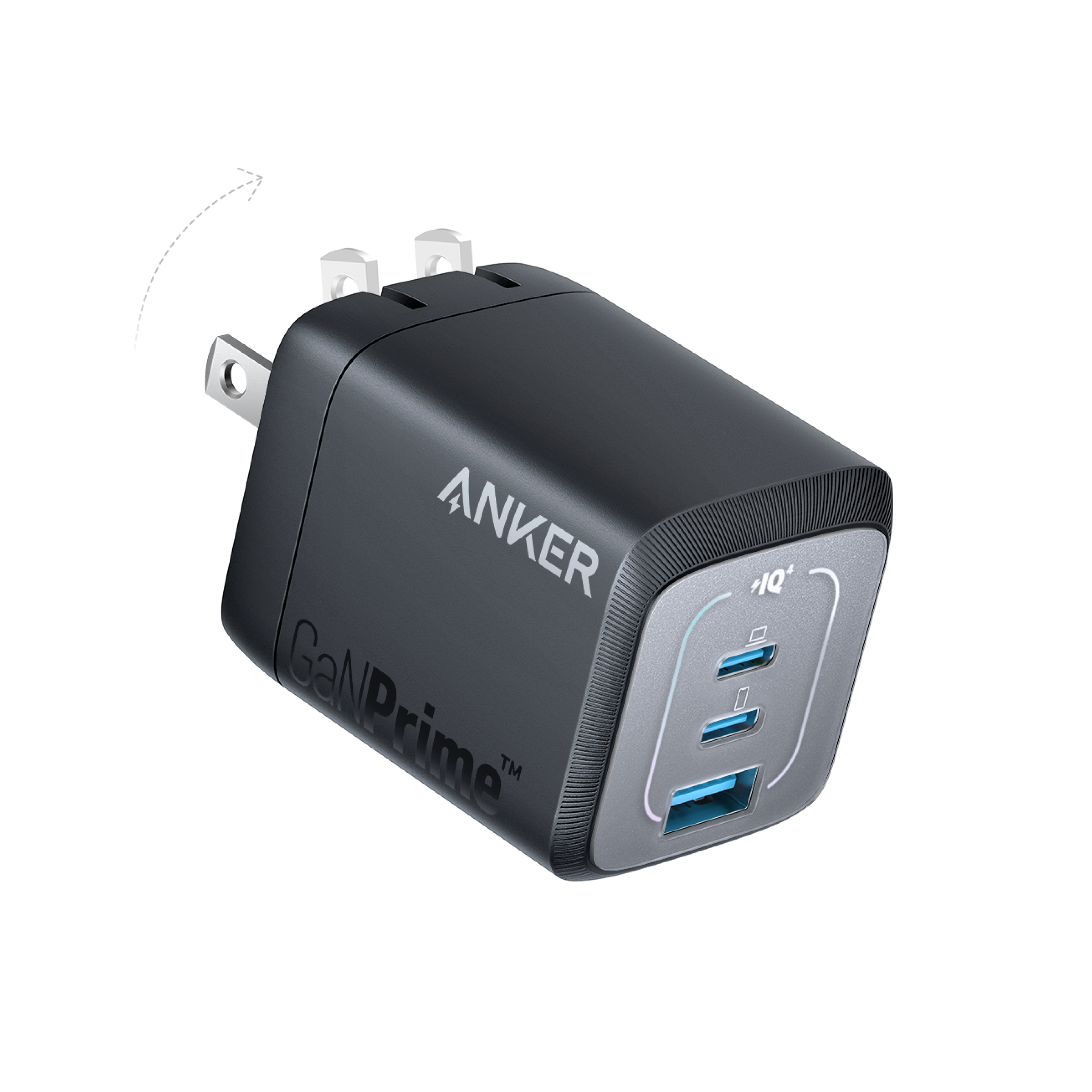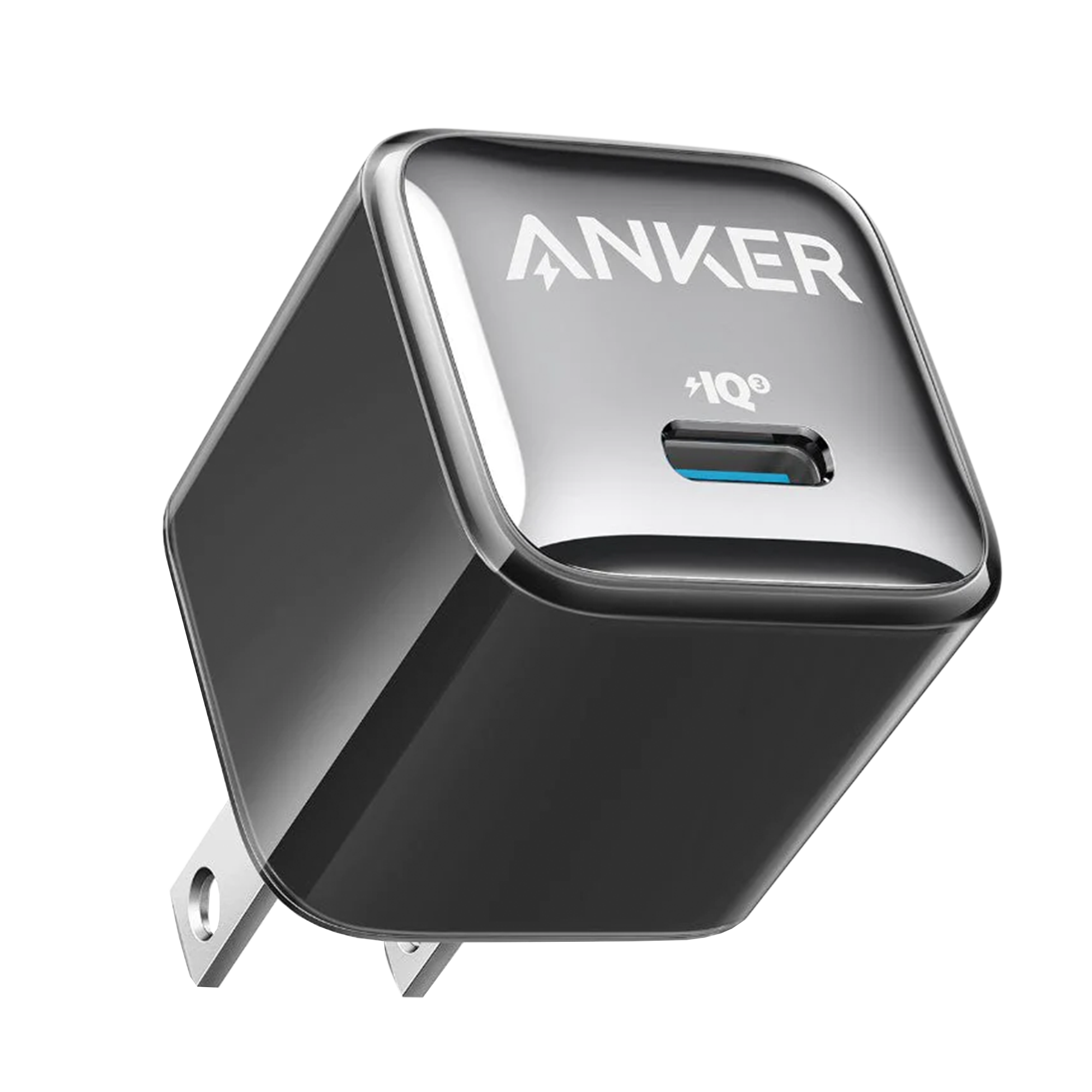Anker is focused on exploring high-efficiency and eco-friendly ways to stay charged, from high-powered wall chargers to multi-port chargers with GaNPrime technology. Anker chargers are your best solution for efficient and eco-friendly charging.
Best Sellers

Filter

New
Anker Prime Charger (250W, 6 Ports, GaNPrime)
$189.99

New
Anker Laptop Charger (140W, 4-Port, PD 3.1) with USB-C Cable
$89.99

Anker Prime 100W GaN Wall Charger (3 Ports)
$99.99

Anker 747 Charger (GaNPrime 150W)
$99.99

New
Anker Prime Charger (100W, 3 Ports, GaN)
$89.99

Anker Prime 67W GaN Wall Charger (3 Ports)
$69.99

Anker 47W USB C Charger (Nano 3)
$29.99

New
Anker Prime Charger (200W, 6 Ports, GaN)
$99.99

Anker 735 Charger (Nano II 65W)
$49.99

Anker 323 Charger (33W)
$25.99

Anker 715 Charger (Nano II 65W)
$49.99

Anker 511 Charger (Nano 3, 30W)
$24.99

Anker Nano Charger (100W) with USB-C Cable
$49.99

Anker 736 Charger (Nano II 100W)
$59.99

Anker Charger (112W, 6 Ports)
$59.99

Anker 511 Charger (Nano Pro)
$19.99

Anker 317 Charger (100W)
$49.99

Anker 315 Charger (67W)
$29.99
Charging FAQs
What are the different types of phone chargers?
There are 3 types of cable connectors that are used for charging phones.
USB-C Charging Cables: This is the most commonly used charging cable, designed to work with all the latest Android phones, and a wide range of tablets, laptops, and more.
Lightning Charging Cables: The Lightning connector is used exclusively with Apple devices, though not all of them. Currently the iPhone still uses a Lightning connector, while the latest iPad models are now using USB-C. A Lightning cable is also required to charge AirPods.
Micro USB Charging Cables: The Micro USB cable is now virtually obsolete. In the past it was the main charging method for phones, small items like toys, and early wireless headphones.
What is the difference between USB-A and USB-C chargers?
USB-A and USB-C chargers are different in 2 main ways.
Design: USB-A features pin connectors and has a thin, rectangular cross-section, and can only be connected in one direction. USB-C, on the other hand, has an oblong-shaped plug that is smaller, more rounded, symmetrical, and can be inserted in any direction.
Performance: The USB-C standard is a big improvement on USB-A, which enables higher power capacity and much faster data transfer, which is why it is preferred by most major phone brands.
What happens if you charge your phone with a different charger?
If the connectors match, generally you can use a different charger for your phone charging with no issues, though the charging speed may vary depending on the charger’s power wattage. That's why multi-port chargers and even wireless chargers are becoming more popular. However, it’s also recommended to use certified quality chargers from your phone's manufacturer or from an established company like Anker to ensure safe charging.
Can the wrong charger damage your phone?
It depends. If you charge your phone using a certified quality charger with the same connectors as your original charger, there should be no effect on the phone. However, your phone or battery may be damaged or potentially affected when charged with cheap off-brand chargers if they were not made to official charging and safety standards.
Is it safe to leave chargers plugged into the wall?
It’s not advised to leave chargers plugged into the wall when not in use, even though energy experts say that phone chargers only use electricity when they’re charging. However, long USB cables from these USB wall chargers still pose safety risks, especially for families with kids, elders, or pets who could be tripped.












